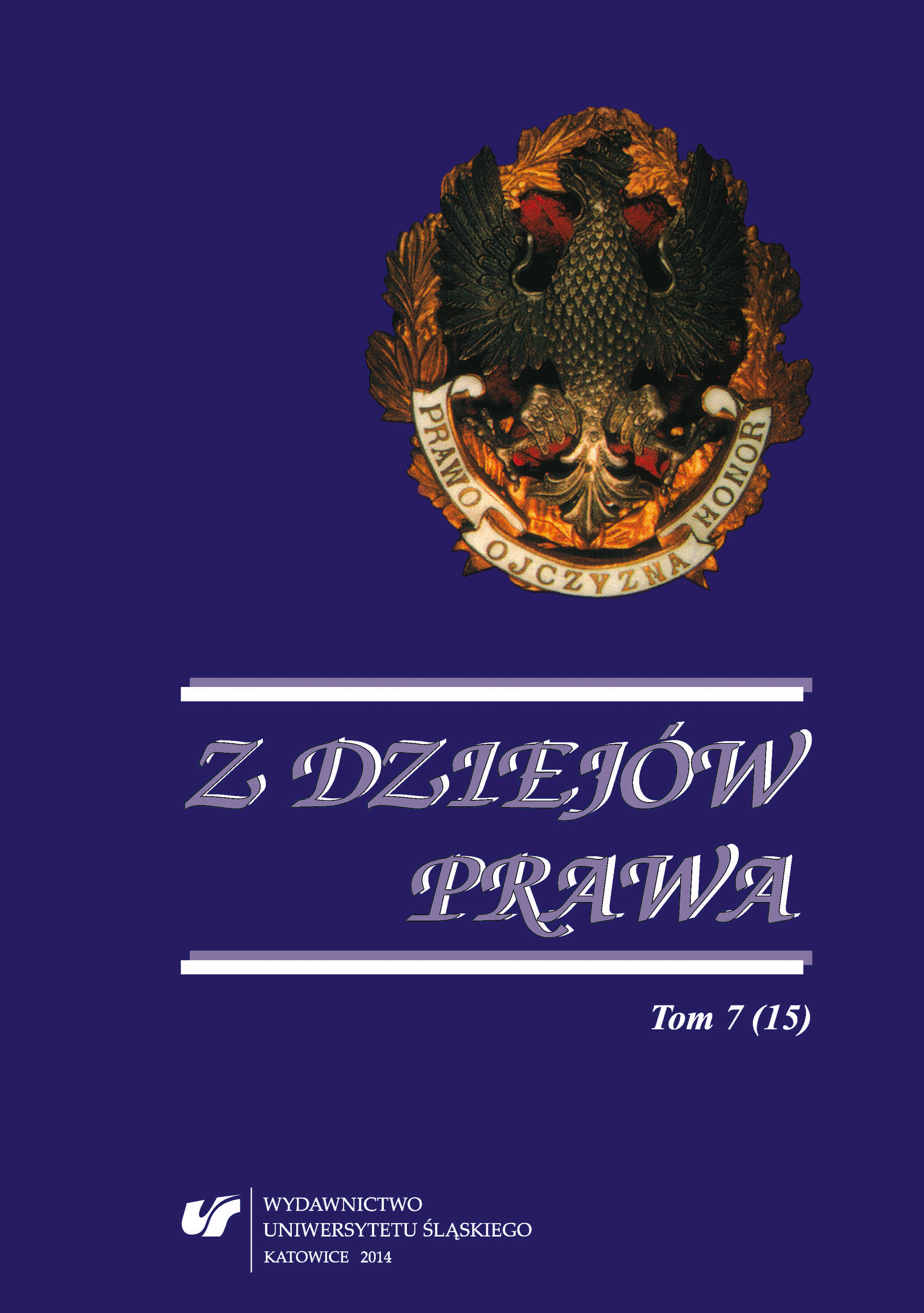Weksel w obrocie gospodarczym na ziemiach polskich od XVII do końca XIX wieku
Bill of Exchange in Business Trading in the Territory of Poland from the 17th Century to the End of the 19th Century
Author(s): Jan MelerSubject(s): Law, Constitution, Jurisprudence
Published by: Wydawnictwo Uniwersytetu Śląskiego
Summary/Abstract: Scholarly literature assumes that European bills of exchange have originated in Italy in the times of the crusades, in order to facilitate trade exchange and money circulation, which was particularly hampered and limited in the Middle Ages. Moreover, the rapid growth of towns and town confederations (the Hanseatic League) had contributed to the increase in popularity of this particular method of loan security. The article focuses on the development of the bill of exchange in the territory of Poland since its emergence in business trading up until the moment in which this method of loan security began to be regulated according to the rules in force in the occupation countries. Contemporary proceedings by writ of payment from the bill of exchange, based upon the abstract nature of the contractual relationship, conducted in a simplified manner, with limited evidence and charges inhabilitas personae, anticipation temporis falsificatio, do not differ significantly, on the fundamental level, from the Polish bill of exchange-based proceedings conducted in the 18th and 19th century.
Journal: Z Dziejów Prawa
- Issue Year: 15/2014
- Issue No: 7
- Page Range: 101-116
- Page Count: 16

